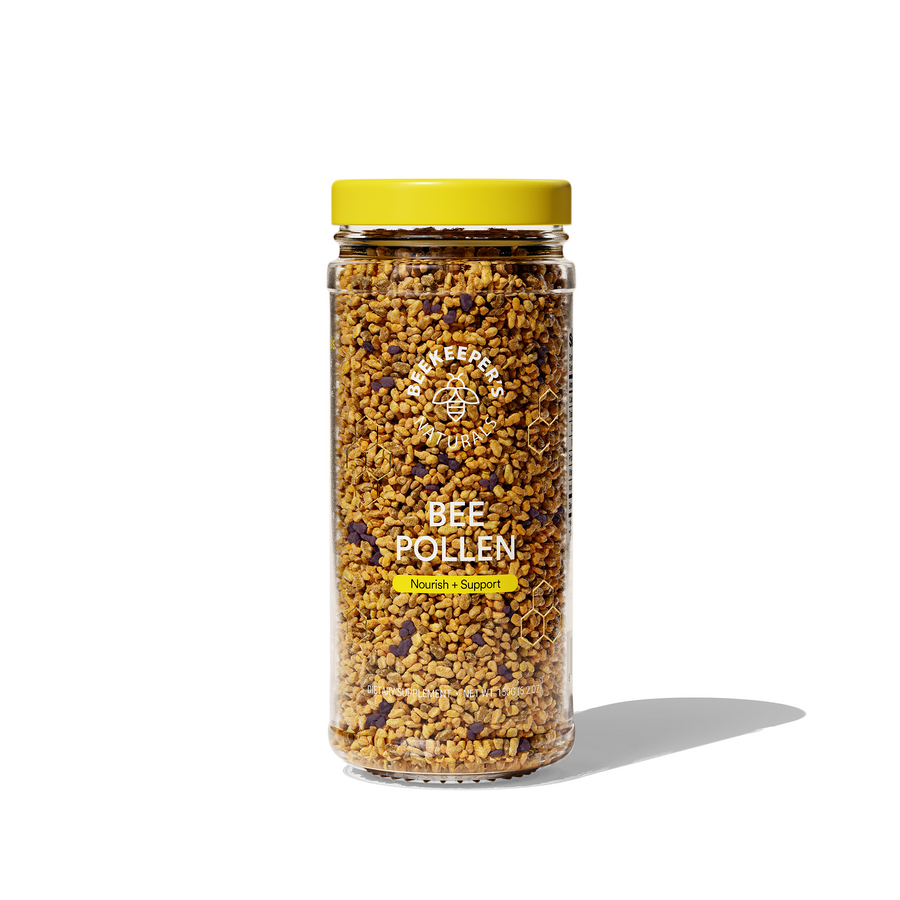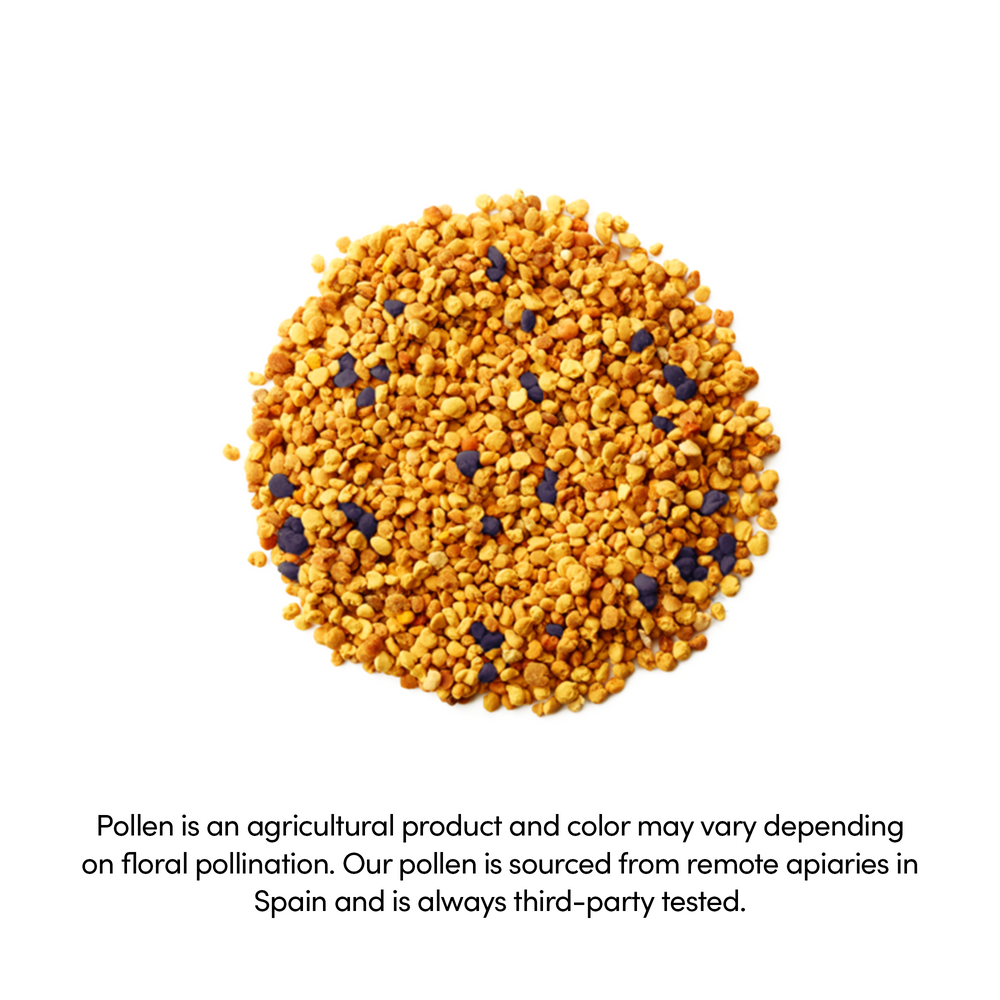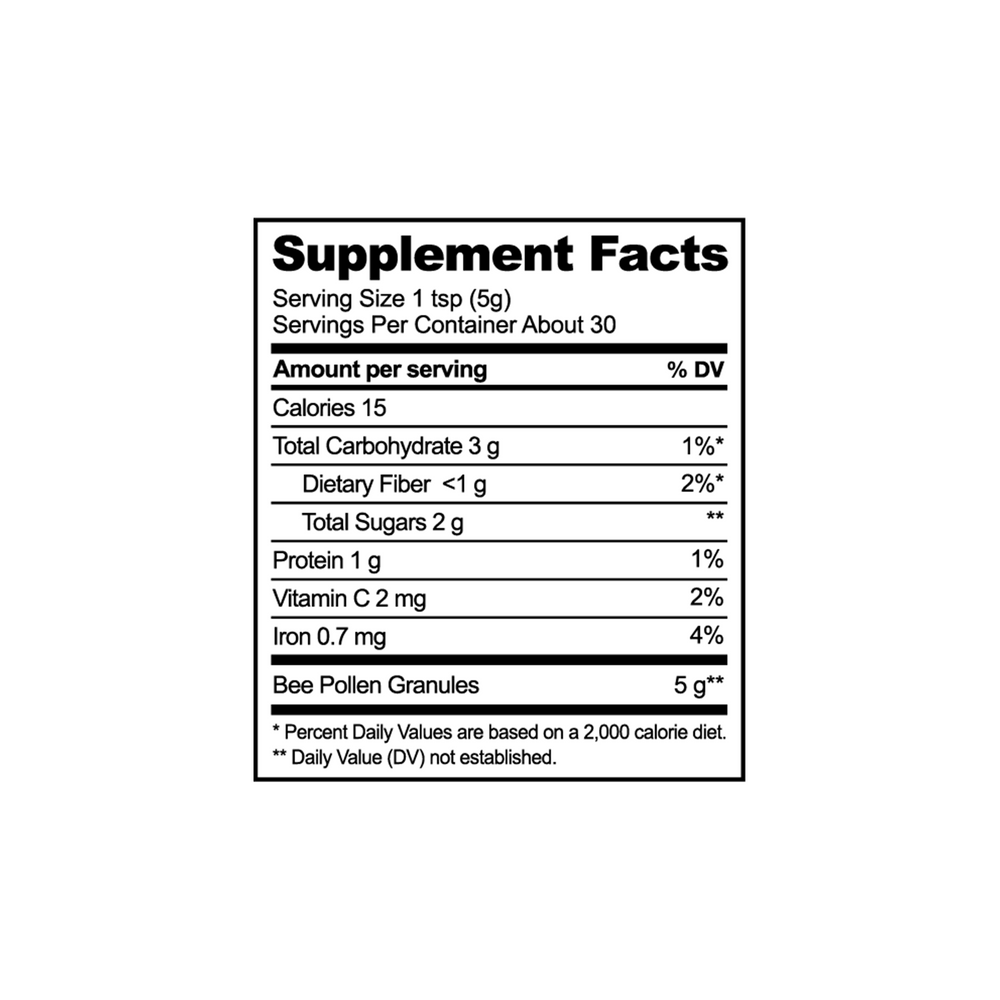Beekeeper's Naturals
Bee Pollen
Bee Pollen
Couldn't load pickup availability
Nature’s multivitamin. A teaspoon of bee pollen delivers potent nutrients—like protein, iron, B vitamins, and copper—to energize and nourish your whole body.
Bee pollen delivers B vitamins, minerals, free-forming amino acids, and antioxidants. Sprinkle it on anything to nourish your body and support your busy schedule.
150g (5.2 oz)
The NO list
- No Refined Sugars
- No GMOs
- No Glyphosate
- No Artificial Flavors
- No Dyes
- No Antibiotics
- Drug-free
Ingredients
Ingredients
Raw, sustainably sourced wildflower bee pollen.
Caution: Not for individuals with asthma or allergies to pollen or bee products. Consult a health care practitioner prior to use if you are pregnant or breastfeeding or for use with children.
Benefits
Benefits
Recommended Use
Recommended Use
Take one teaspoon per day. Sprinkle onto smoothies, yogurt, salads, or simply spoon straight from the jar.
Notes & Cautions
Notes & Cautions
How do I use the Bee Pollen?
The recommended daily dose of bee pollen is 1 teaspoon. You may want to start with 1/2 a teaspoon and work your way up to 1 tsp per day over time. If there are any seasonal allergies or allergies to pollen present, please consult your healthcare practitioner prior to trying the product. We love bee pollen sprinkled over yogurt, oatmeal, or avocado toast, or blended into a smoothie.
What is the age minimum?
For kids under 12 and over the age of 2, we suggest using our Bee Pollen by starting with a few granules and monitoring for tolerance. Based on your child's response, you can gradually increase dosage daily to the full dose of 1 tsp per day. That said, we always recommend consulting with a healthcare professional before use of a new product.
What are the dark granules?
Bee pollen will often have darker granules during certain seasons. When bees forage, they collect pollen from hundreds (if not thousands) of flowers daily. The color of the pollen varies depending on the type of flowers the bee is visiting and what’s in bloom at the time. Certain batches of our bee pollen contain darker, purple pollen granules, which often come from Purple Viper’s-bugloss flowers, or Rockrose, Mustard, and Common Heather plants.






